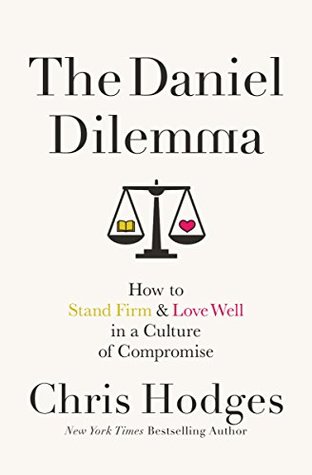More on this book
Community
Kindle Notes & Highlights
by
Chris Hodges
Read between
January 5 - February 13, 2018
“those who know your name trust in you, for you, LORD, have never forsaken those who seek you”
Real
worship ultimately boils down to trust.
If we don’t recognize the distinction between our role as human beings—creations of God who are made in his image—and the character and power of God, then eventually our doubts may erode our faith.
We always become what we worship.
What makes humility so desirable is the marvelous thing it does to us; it creates in us a capacity for the closest possible intimacy with God. —MONICA BALDWIN
To stay healthy, we must stay humble.
True dependence on God relies on prayer as a consistent lifeline—every day and not just when the going gets tough.
Having an attitude of gratitude.
This is the essence of sin in a nutshell: my way instead of God’s way.
God is always ready to respond to a broken heart.
First, exalt the King of heaven.
Next, acknowledge that God does everything right and all his ways are just.
He just asks us to obey him.
To trust him. It’s actually very liberating to trust in something you do not have to understand.
Humility is not thinking less of yourself; humility is thinking of yourself less.
Finally, walk in humility.
God is more interested in your character than your comfort. He would rather have you holy than happy.
Our choices must lead and our feelings will follow.
Despite the full range of human emotions Daniel may have experienced throughout his seventy years in captivity, he chose to exercise his own free will in refusing to back down when faced with the cultural pressure of the Babylonians. His decisions were not based on circumstances, excuses, or rationalizations. They were based on his trust in God.
But we can lovingly engage in conversations in which we seek to understand where they’re coming from and what they’ve been through.
First, we followed our feelings instead of our faith.
But it’s not okay to call our feelings our truth.
God’s eternal truth exists regardless of what we feel or don’t feel.
After all, Jesus was tempted, but he never gave in and committed a sin.
long as we seek God more than anything or anyone else, then we should embrace feelings in a healthy way and use them to further our purpose and enjoyment of life.
Second, we trusted ourselves more than we trusted God.
The Bible couldn’t be clearer: we must learn to crucify our flesh and live like Jesus.
Living the Crucified Life
But Paul indicates that our salvation involves ongoing crucifixion of our fleshly desires:
My feelings don’t define me. My choices do.
You will never know God is all you need until He is all you have. —MOTHER TERESA
Our Father remains waiting for us to return so he can welcome us with open arms—just like he’s always done.
First, we must humble ourselves.
Next, we must pray.
Throughout the Bible, we’re told to be people of prayer who depend on God for everything.
Prayer is not informing God about our realities. It’s aligning our hearts with his realities.
We must seek his face.
We must turn.
But it’s true. It’s better to give up and trust God than to cling tight and try to control everything.
In fact, old Jacob would be the first to tell us that when our lives aren’t turning out the way we hoped, we should just let God have control.
“Come to me, all you who are weary and burdened, and I will give you rest. Take my yoke upon you and learn from me, for I am gentle and humble in heart, and you will find rest for your souls” (Matt. 11:28–29).
In other words, stop doing it your way and try my way—it’s much lighter.
God doesn’t see what you are but what you can become. He doesn’t see actualities; he sees possibilities.
Your Creator sees greatness in you that you don’t even see
yourself. Give God the control of your life, and he’ll gi...
This highlight has been truncated due to consecutive passage length restrictions.
You’ll never know all that your life can be until you hand it over to the One who gave you life.
God is our only hope.
The time is always right to do what is right. —MARTIN LUTHER KING, JR.
In part 1 of this book we explored how the Babylonian culture attacked the identity of their Hebrew prisoners of war.


